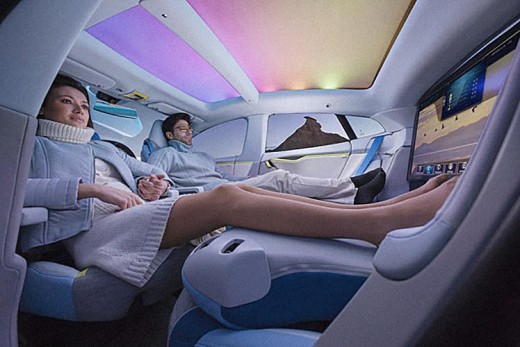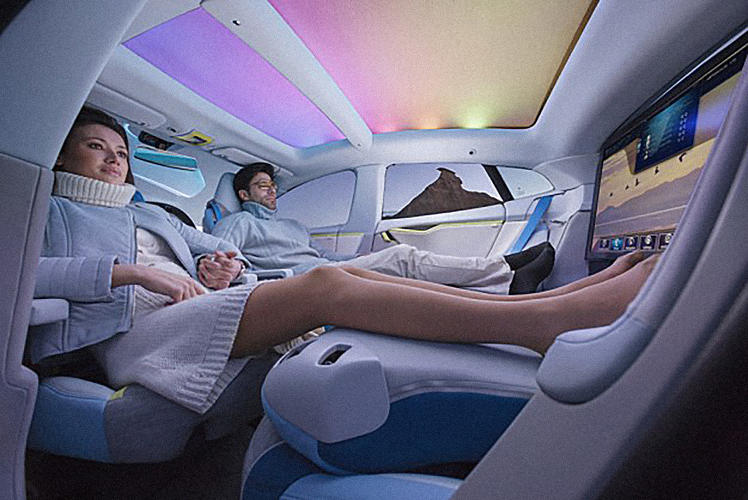Self-Driving Cars Could Steal The Last Of Your Free Time
New concepts from Mercedes and Ideo reveal something scary. Your commute could be claimed for you…or for your boss.
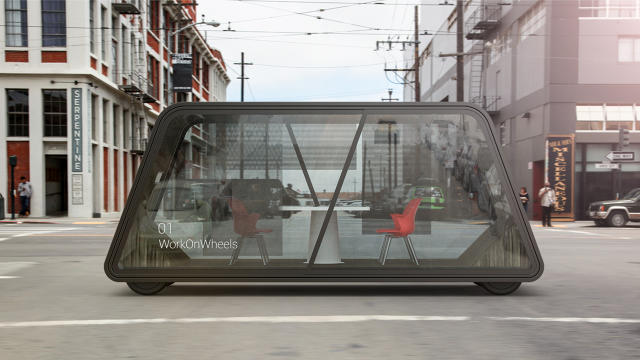
And they each tease an impending battle: When your commute becomes free time, will the car industry hand that time back to you—to create a more relaxing, more social way to travel—or will it hand that time to your boss—to extend the work day even longer in the never-ending quest for productivity? We see the concept of relaxation taken to the extreme by Rinspeed. Their concept for a self-driving car is like a man-cave crossed with a mani-pedi salon. Plush recliners more or less force you to indulge. Nap. Watch TV. Chillax. Enjoy this time, the cabin says. It’s for you.
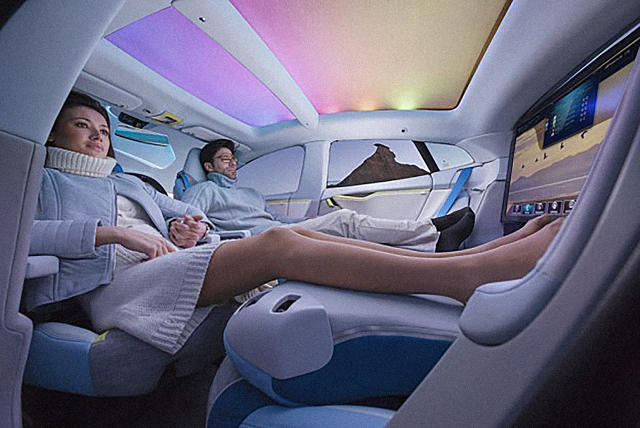
Ideo, meanwhile, takes your free time to the opposite extreme (no doubt, it’s a very intentional provocation on Ideo’s part). They more or less lock you in a moving office with a work-casual tablet and chairs that probably cost more than your next paycheck. You’re not driving, it says, so work! And to add a bit of salt to the wound, that box is clear. That means more sunlight for you, and a better view for the rest of the world who is, no doubt, judging if you’re really working or just slacking in the mobile command center of your business.
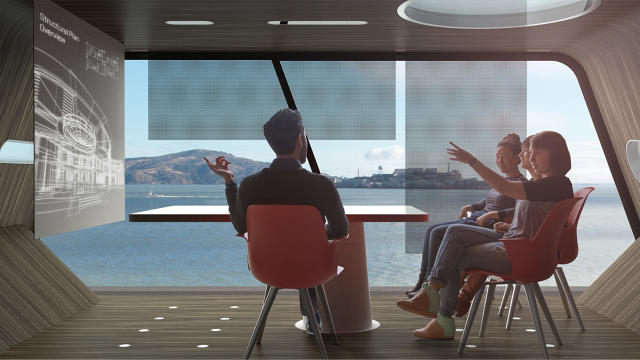
Mercedes may have nailed the happy medium. Their concept—which is a whole lot like the back of my family’s conversion van circa 1986—rotates the front seats to face the back of the car. In between everyone sits a cafe table, suitable for drinks, cards, or laptops. What I can appreciate about the Mercedes experience is that it’s inherently social—which is, admittedly, probably more important on vacations and weekend errands than it is the daily drive. Their rotating seats solve the age-old problem of the people in the front of the car speaking to those in the back of the car. It also breaks down that inherent shotgun-based-caste system in a King-Arthur-esque, kumbaya-singing, everyone is equal love-in. But, let’s be honest: You could just as easily imagine four people playing euchre around this table as you could imagine four people going over their next big presentation.
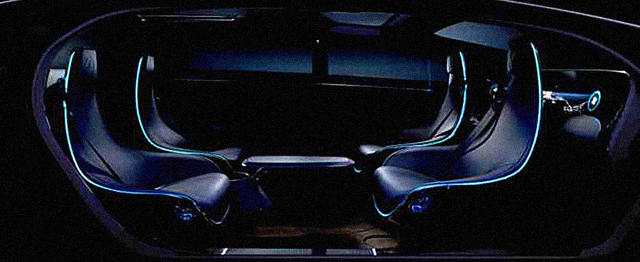
Mercedes teases a future that’s neither idealistic and indulgent, nor tortuous and productivity-focused. This multifunctional design implies that, much like our smartphones allow us to read books and play games, but also require us to answer late-night emails and respond to early morning work texts, so too will our cars be forced to wear both hats. But whether or not Mercedes’s balanced work/play vision is probably right about the evolution of our cars doesn’t mean that it should be right. Consider the missteps by the airline industry when they added Wi-Fi. Now, everyone on a cross-country work flight is now more or less forced to telecommute with a tray table in their knees. If our employers, and our own ambitions, are given the option to work more, we’ll take it for the sake of our own physical and mental comfort.
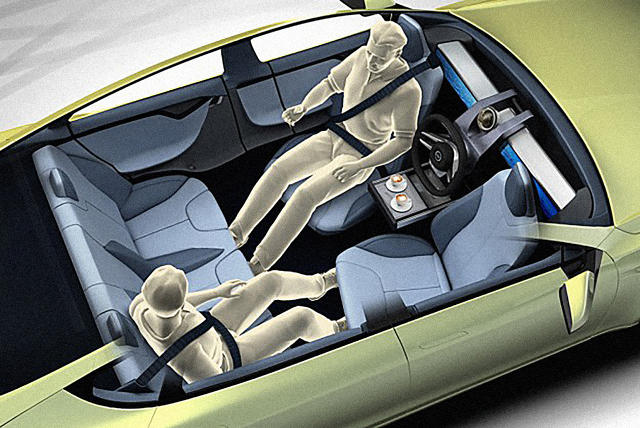
I don’t mean to be overly dramatic about the daily commute, but it’s a somewhat sacred thing. It’s frustrating to be caught in traffic, sure, but it’s self-focused time. Like showering or cooking dinner, it’s part of your day that belongs to the things you have to get done (even if that thing is getting to work). As soon as driving to work no longer requires actual driving, that self-focused time goes up for grabs again. And as we see in the above designs, it can go two ways for all of us. We can invest that self-directed time back in ourselves—paint our nails, play our Xboxes, or read a story to our children before they’re dropped off at school. Or we can do what we’ve been doing pretty steadily for the last two decades, and leverage new technology to make us more “productive.” Car designers have a rare opportunity here, to not just cater to market demands, but to shape the social norms around the future of work and travel. Together, they can design the future of travel in an almost collusive way—one that traps us for 50 minutes a day, not in another office, but a place where we’re forced to invest in ourselves.
(243)

